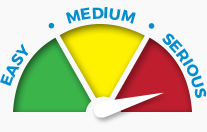IRS Letter CP39
Why are you receiving this letter?
You received IRS letter CP39 because the IRS used a refund from your spouse or former spouse to pay a past due tax debt.

- There is no further action required if you already have an arrangement with the IRS.
- You can pay in full online at www/irs.gov/payment.
- You owe less than $10,000 and would like to set up an installment agreement. You can call the number on the top right hand corner of your IRS letter and the IRS will give you up to 72 months to pay back the taxes.

- Your tax balance is less than $25,000.
- You don’t have unfiled tax returns.
- You are unable to pay back the taxes in full.
- You would like to discuss this with someone not working for the IRS to understand what is going on and the options you have.

- Your tax balance is greater than $25,000.
- You have unfiled tax returns.
- You are unable to pay back the taxes in full.
- You would like to negotiate down the tax balances.
What you should do?
Read your notice carefully. The notice will explain where the IRS applied the overpayment and the outstanding tax balance.
If you disagree with this notice, contact the IRS at the telephone number listed at the top right corner of the Notice. You may be able to change the how the payment is applied. Contact our office to review your options.
If you agree, there is nothing you need to do.
What can you expect next?
IRS letter CP39 is considered a tax bill. The IRS asks that you pay the balance due in full. You do have options to setup arrangements with the IRS if you are unable to pay the balance due in full. It is in your best interest to pay as quickly as possible to minimize penalties and interest. You do have options, but if the tax bill is left unpaid, the IRS may move forward with filing Federal Tax Liens and/or Tax Levies on your wages, bank accounts, state & federal tax refunds, etc.

